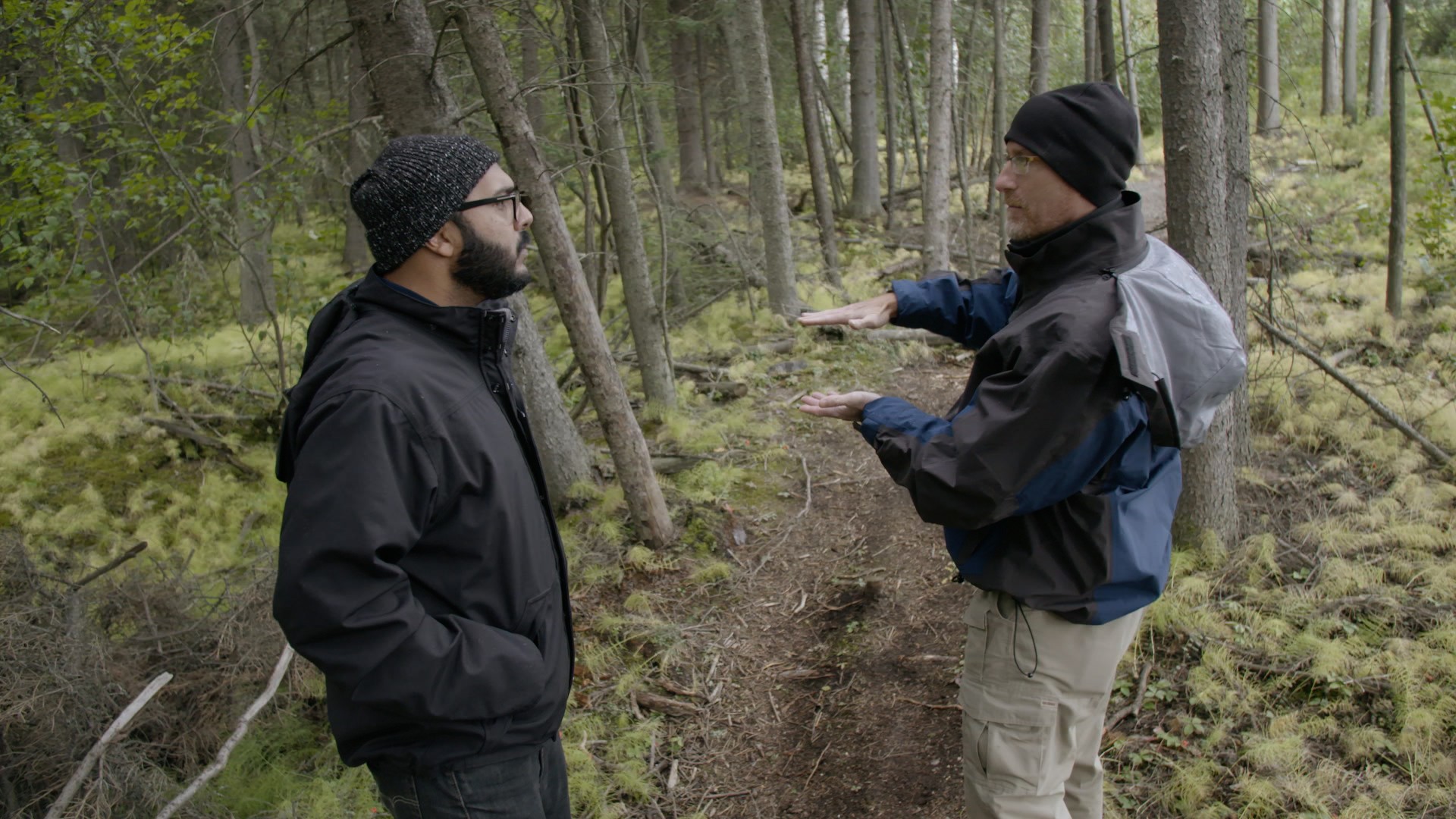Nunavut MP Mumilaaq Qaqqaq. Photo courtesy of Aasiva Nakashuk
As the newest MP for Nunavut, Canada’s largest riding by landmass, 25-year-old Mumilaaq Qaqqaq has already set herself apart from what came before.Ever since Nunavut became its own territory in 1999—and since Qaqqaq was born—the region has been represented in Ottawa by Canada’s two governing parties, the Liberals and Conservatives.After hearing Prime Minister Justin Trudeau talk about reconciliation for four years, Qaqqaq leapt at an opportunity to challenge those talking points with a political campaign of her own. She ran as a New Democrat, and finished ahead of former Conservative environment minister Leona Aglukkaq.“I’m glad Nunavut was ready for that change,” she said on the phone from her hometown Baker Lake, where she celebrated with family and a parade of supporters. On Saturday, former Liberal justice minister-turned-whistleblower Jody Wilson-Raybould congratulated Qaqqaq on the win.Like Wilson-Raybould, Qaqqaq is uniquely positioned as a critical voice on some of Trudeau’s most neglected and disputed promises, from the “nation-to-nation” relationship with Indigenous peoples he pushed in 2015, to the Liberals’ many climate initiatives announced on the 2019 campaign trail.“Trudeau has talked a lot about reconciliation, and how important the Indigenous relationship is—I think at one point he was saying it’s the most important one there is—and really is it?” Qaqqaq asked in a phone interview. “He talks nicely, and they’ve done apologies, but where’s the action?”Trudeau visited Nunavut twice during the election campaign, and Qaqqaq made sure to point out the timing to voters. “I’ve been asking people, how often do you remember seeing him when elected?” she said. “We’re still talking about lack of housing and food insecurity. We’re still having the same conversations that we were when Nunavut was first created.”Nunavut is a vast Arctic territory that has been home to Inuit communities for thousands of years—many still grappling with trauma stemming from forced settlement. “We've faced so many social issues here in Nunavut. I've been talking a lot about our suicide crisis, housing, food insecurity, lack of health services, and mental health services.”Qaqqaq says the region is used to hearing excuses, and waiting years for delayed projects. A recent study by the Canadian Medical Association Journal found 46 percent of households in the territory experience some kind of food insecurity. “Where’s the increase in housing? Where is reforming Nutrition North and including our country foods? Where is lowering the living costs? Where is creating job opportunities?” she asked. Qaqqaq took early steps into Canada’s political arena in 2017, when she gave a fiery speech in the House of Commons. “I said that we’re put into systems that don’t make sense to us, and then we’re asked to come up with solutions to things that don’t even make sense to us in the first place,” she recalled.When asked about the decision to become an advocate in this kind of colonial system, Qaqqaq said the need for a better working relationship with the government made it simple. “It needs to be a two-way street, and it hasn’t been,” she said. “People are worrying about a roof over their head, worried about food to eat that day—living day to day, week to week, month to month. So how do you expect a group of people to be able to communicate effectively when they’re worried about basic human rights, about food, about clean drinking water?”Qaqqaq’s win came amid an ongoing struggle over how Inuit culture is reflected and appropriated by outsiders, rekindled in part by a New York Times story headlined “Drawn From Poverty: Art Was Supposed to Save Canada’s Inuit. It Hasn’t.” The piece set off a raw discussion about stereotypes and colonial saviour narratives, as hinted by the possessive “Canada’s Inuit” in the title.“It’s poverty and trauma porn,” Inuit filmmaker Alethea Arnaquq-Baril tweeted Saturday. “It is one in a loooong line of many that make privileged folk feel better about themselves by feeling bad for Inuit.”Qaqqaq says the fight for self-determination is sometimes messy, and requires outsiders to face Canada’s attempts to erase Inuit culture.“We’ve seen things like throat singing, face tattoos, we’ve seen hunting practices, sewing practices come back, and it’s all happening so quickly, and I feel that people aren’t giving Inuit the room to breathe,” she said.“We are just starting to regain traditional practices and cultural aspects that were meant to be eliminated… through the churches, through residential school, through forced relocation, through dog slaughters, though all these different events that took place.”Qaqqaq is also on the younger side of an age divide in Canadian politics. Though she gets a lot of questions about being one of the youngest MPs this term, she doesn’t see much reason for the fixation. “Youth is the largest age demographic in Nunavut. I’m representing the biggest age demographic of our territory,” she said. Census data from 2016 shows two thirds of Nunavut’s population are under 35 years old.And while the environment took a back seat to more pressing issues on the campaign trail, Qaqqaq is also looking forward to talking about climate change in Parliament. “Although we don’t physically see the big polluters because all those industries are not in our territory, we experience those effects firsthand,” Qaqqaq said, adding that seasons are getting longer and shorter in unpredictable ways.Some parts of the Arctic are warming as much as three times faster than the rest of Canada, affecting animal migration, snowfall, and permafrost. “We’ve seen sinkholes in certain parts of the territory, which is really scary to think about permafrost disappearing, and how that’s going to affect our land, our infrastructure, our homes.”Land animals like caribou are starting to look skinny and sickly by the end of the extended summer season, said Qaqqaq. “We’ve seen new insects come into our territory. We had a moose in our territory, which is unheard of.”“It’s not something I would have ever thought of growing up,” she added. “I am only 25, so I can’t imagine what else happens in the next 10 years for us.”Follow Sarah Berman on Twitter.
Qaqqaq took early steps into Canada’s political arena in 2017, when she gave a fiery speech in the House of Commons. “I said that we’re put into systems that don’t make sense to us, and then we’re asked to come up with solutions to things that don’t even make sense to us in the first place,” she recalled.When asked about the decision to become an advocate in this kind of colonial system, Qaqqaq said the need for a better working relationship with the government made it simple. “It needs to be a two-way street, and it hasn’t been,” she said. “People are worrying about a roof over their head, worried about food to eat that day—living day to day, week to week, month to month. So how do you expect a group of people to be able to communicate effectively when they’re worried about basic human rights, about food, about clean drinking water?”Qaqqaq’s win came amid an ongoing struggle over how Inuit culture is reflected and appropriated by outsiders, rekindled in part by a New York Times story headlined “Drawn From Poverty: Art Was Supposed to Save Canada’s Inuit. It Hasn’t.” The piece set off a raw discussion about stereotypes and colonial saviour narratives, as hinted by the possessive “Canada’s Inuit” in the title.“It’s poverty and trauma porn,” Inuit filmmaker Alethea Arnaquq-Baril tweeted Saturday. “It is one in a loooong line of many that make privileged folk feel better about themselves by feeling bad for Inuit.”Qaqqaq says the fight for self-determination is sometimes messy, and requires outsiders to face Canada’s attempts to erase Inuit culture.“We’ve seen things like throat singing, face tattoos, we’ve seen hunting practices, sewing practices come back, and it’s all happening so quickly, and I feel that people aren’t giving Inuit the room to breathe,” she said.“We are just starting to regain traditional practices and cultural aspects that were meant to be eliminated… through the churches, through residential school, through forced relocation, through dog slaughters, though all these different events that took place.”Qaqqaq is also on the younger side of an age divide in Canadian politics. Though she gets a lot of questions about being one of the youngest MPs this term, she doesn’t see much reason for the fixation. “Youth is the largest age demographic in Nunavut. I’m representing the biggest age demographic of our territory,” she said. Census data from 2016 shows two thirds of Nunavut’s population are under 35 years old.And while the environment took a back seat to more pressing issues on the campaign trail, Qaqqaq is also looking forward to talking about climate change in Parliament. “Although we don’t physically see the big polluters because all those industries are not in our territory, we experience those effects firsthand,” Qaqqaq said, adding that seasons are getting longer and shorter in unpredictable ways.Some parts of the Arctic are warming as much as three times faster than the rest of Canada, affecting animal migration, snowfall, and permafrost. “We’ve seen sinkholes in certain parts of the territory, which is really scary to think about permafrost disappearing, and how that’s going to affect our land, our infrastructure, our homes.”Land animals like caribou are starting to look skinny and sickly by the end of the extended summer season, said Qaqqaq. “We’ve seen new insects come into our territory. We had a moose in our territory, which is unheard of.”“It’s not something I would have ever thought of growing up,” she added. “I am only 25, so I can’t imagine what else happens in the next 10 years for us.”Follow Sarah Berman on Twitter.
Advertisement
Advertisement

Advertisement
